Science Topic: Planetary Climate
Parallel Session
5th Shaw-IAU Workshop on Astronomy for Education
Session timeblocks
Wednesday Nov. 29, 2023
Session A:
UTC: 9 a.m. -
10:30 a.m.
America/New_York:
4 a.m.-
5:30 a.m.
Session A, repeated:
UTC: 5:30 p.m. -
7 p.m.
America/New_York:
12:30 p.m.-
2 p.m.
Thursday Nov. 30, 2023
Session B - Part 1:
UTC: 12:30 p.m. -
2 p.m.
America/New_York:
7:30 a.m.-
9 a.m.
Session B - Part 2:
UTC: 6:30 p.m. -
8 p.m.
America/New_York:
1:30 p.m.-
3 p.m.
Friday Dec. 1, 2023
Session B - Part 1, repeated:
UTC: 8 a.m. -
9:30 a.m.
America/New_York:
3 a.m.-
4:30 a.m.
Session B - Part 2, repeated:
UTC: 10 a.m. -
11:30 a.m.
America/New_York:
5 a.m.-
6:30 a.m.
A comprehensive understanding of how the climate has evolved in our home planet is key for us to discern between natural climate variations and those influenced by human activities. We can also apply this understanding to the diverse atmospheres of other planets in the Solar System and beyond. Combining this knowledge we refine our understanding of Earth’s climate system and gain deeper awareness of the factors driving climate change. This session aims to offer us a comprehensive exploration of planetary climate dynamics from the Earth to exoplanets, and how more informed decision-making can help us to develop effective strategies to mitigate and adapt to climate change.
Schedule
-
The polar ice sheets, sea level rise and climate change on planet Earth
Wednesday Nov. 29, 2023
UTC: 9:05 a.m. - 9:20 a.m. America/New_York: 4:05 a.m.- 4:20 a.m.Wednesday Nov. 29, 2023
UTC: 5:35 p.m. - 5:50 p.m. America/New_York: 12:35 p.m.- 12:50 p.m.Natalya Gomez and research team work on understanding the physics of ice sheets, oceans, the solid Earth and climate change. Her talk focusses on understanding how the polar ice sheets in Greenland and Antarctica respond to climate change and cause global sea levels to rise and impact coastal areas around the world. She highlights the substantial amounts of ice loss and sea level rise that stand to be avoided by quickly transitioning away from fossil fuel burning, the need to prepare for changes to come in coastal areas, and the value of hope, connection and action to support resilience in the face of future climate change and move towards a more sustainable future.

Natalya Gomez (McGill University)
For more information about this talk click here
-
Global Climate Change and a Build-Up of a New Society
During Session A : UTC: 9 a.m. - 10:30 a.m. America/New_York: 4 a.m.- 5:30 a.m.
Repeated during Session A, repeated : UTC: 5:30 p.m. - 7 p.m. America/New_York: 12:30 p.m.- 2 p.m.

Artaxo Paulo (University of São Paulo)
For more information about this talk click here
-
Impacts of Climate Change on Astronomy
Wednesday Nov. 29, 2023
UTC: 9:35 a.m. - 9:50 a.m. America/New_York: 4:35 a.m.- 4:50 a.m.Wednesday Nov. 29, 2023
UTC: 6:05 p.m. - 6:20 p.m. America/New_York: 1:05 p.m.- 1:20 p.m.The on-going anthropogenic climate change is affecting the weather patterns all over the planet. Ongoing anthropogenic climate change is affecting weather patterns across the globe. Astronomical sites, home to world-class telescopes, are not spared from the fallout of climate change. This presentation summarizes the impacts of climate change on astronomical observations we can already observe today, as well as the trends expected at major sites. Four important parameters for astronomical observations are discussed: temperature, humidity, atmospheric turbulence and wind speed. Other more significant threats, such as storms and forest fires, are also discussed. Finally, the social impact of climate change will certainly disrupt telescope operations due to lack of resources, restricted access or communication problems.

Faustine Cantalloube (Laboratoire d'Astrophysique de Marseille (LAM))
For more information about this talk click here
-
Discussion Panel: Earth’s climate trends and projections: exploring the past, present, and future of our planet
Wednesday Nov. 29, 2023UTC: 9:50 a.m. - 10:30 a.m. America/New_York: 4:50 a.m.- 5:30 a.m.
Wednesday Nov. 29, 2023
UTC: 6:20 p.m. - 7 p.m. America/New_York: 1:20 p.m.- 2 p.m.Chair:
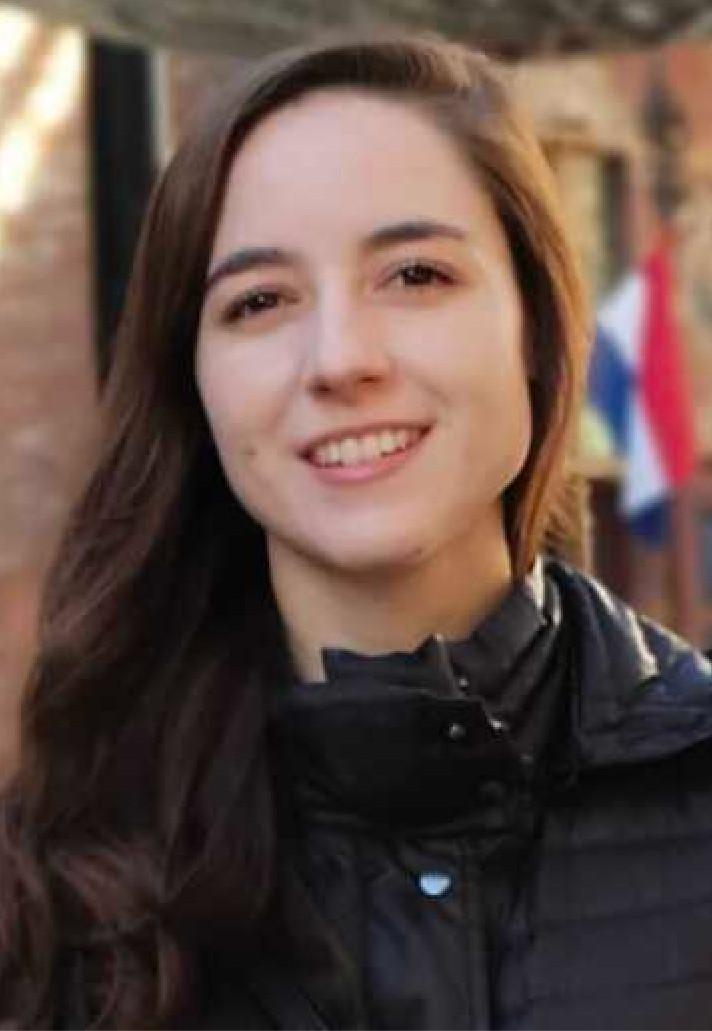
Samantha Brown-Sevilla
Panel: Natalya Gomez , Artaxo Paulo
(University of São Paulo), Faustine Cantalloube -
Solar System Giant Planets
Thursday Nov. 30, 2023
UTC: 12:35 p.m. - 1 p.m. America/New_York: 7:35 a.m.- 8 a.m.Friday Dec. 1, 2023
UTC: 8:05 a.m. - 8:30 a.m. America/New_York: 3:05 a.m.- 3:30 a.m.In this presentation on 'Solar System Giant Planets,' we embark on a journey through our current understanding of the atmospheres of the big giants in our Solar System: Jupiter, Saturn, Uranus and Neptune. We'll explore the exciting space missions that have ventured into their realms and learn how the James Webb Space Telescope (JWST) and ground-based telescopes contribute vital information to our knowledge. In particular, we’ll talk about the fascinating findings from missions like Juno and Cassini, which have unraveled the mysteries behind the fast rotations of these giants and revealed the true shallowness of the Great Red Spot, among other findings. We’ll discover how we've probed the depths of their atmospheric bands and winds, unveiling their unique compositions. Join us as we unravel the secrets of their atmospheric and bulk compositions, shedding light on the remarkable journey of their formation and evolution. Along the way, we'll touch upon the intriguing uncertainties that continue to captivate scientists in this field.
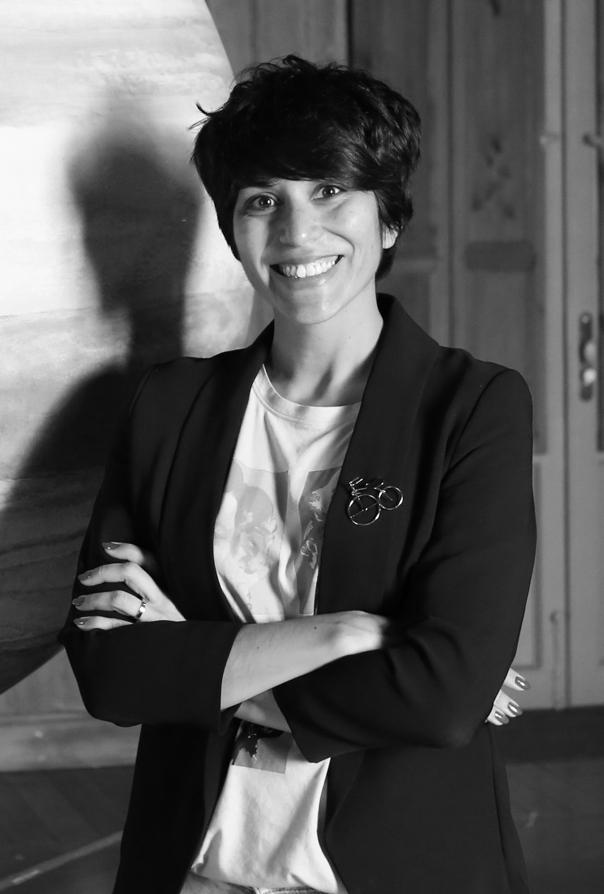
Yamila Miguel (Leiden Observatory and SRON)
For more information about this talk click here
-
Effects of greenhouse gases on Earth, Venus, and Mars: An undergraduate level tutorial
Thursday Nov. 30, 2023
UTC: 1 p.m. - 1:15 p.m. America/New_York: 8 a.m.- 8:15 a.m.Friday Dec. 1, 2023
UTC: 8:30 a.m. - 8:45 a.m. America/New_York: 3:30 a.m.- 3:45 a.m.I present a discussion of the effect of increasing carbon dioxide on planetary climate, at a level suitable for insertion as a module into an upper - level Physics course. The treatment includes two key ingredients that are often missing from more elementary discussions, yet are amenable to analytic methods: First, that convection implies a dependence of surface temperature on the height of the outermost infrared - thick layer; and second, that increasing the level of CO2 closes spectral windows of absorption. These themes are applicable not only to an industrializing Earth but also to our neighboring planets.
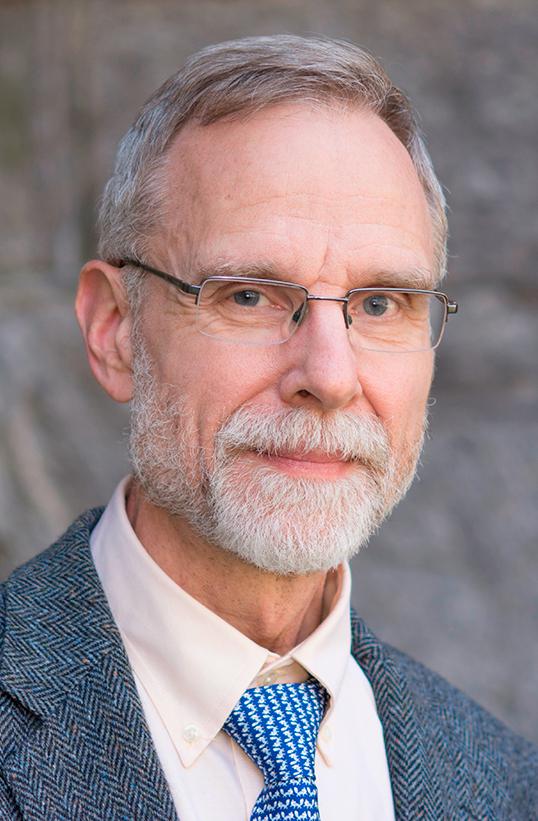
Philip Nelson (University of Pennsylvania)
For more information about this talk click here
-
Biosignatures: On Earth and Beyond
Thursday Nov. 30, 2023
UTC: 1:15 p.m. - 1:30 p.m. America/New_York: 8:15 a.m.- 8:30 a.m.Friday Dec. 1, 2023
UTC: 8:45 a.m. - 9 a.m. America/New_York: 3:45 a.m.- 4 a.m.This article is a review of biosignatures that are used to study habitability and/or the presence of past or present life in our solar system and exoplanets. We discuss the evolution of biosignatures through the period of life on Earth. For the Earth, undisputed biosignatures are only detectable for about a quarter of the Earth’s past. In other periods, detectable biosignatures are not totally reliable and can only determine a statistical likelihood estimate of life on Earth. We also discuss results obtained from various habitability experiments in our solar system. We conclude with a focus on the importance of the study of biosignatures in the new era of exoplanet research with the launch of the James Webb Space Telescope and the era of extremely large ground-based telescopes.
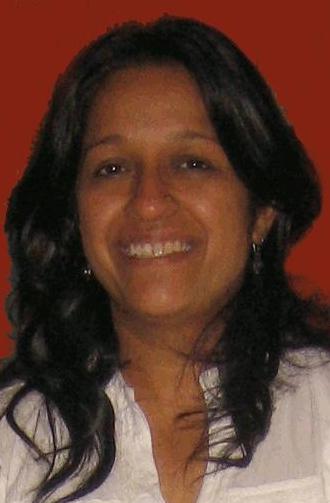
Priya Shah Hasan (Maulana Azad National Urdu University, Hyderabad)
For more information about this talk click here
-
Discussion Panel: Beyond Earth: the atmospheres of planets and moons of the Solar System and exoplanets
Thursday Nov. 30, 2023UTC: 1:30 p.m. - 2 p.m. America/New_York: 8:30 a.m.- 9 a.m.
Friday Dec. 1, 2023
UTC: 9 a.m. - 9:30 a.m. America/New_York: 4 a.m.- 4:30 a.m.Chair:

Samantha Brown-Sevilla
Panel: Yamila Miguel , Philip Nelson , Priya Shah Hasan
(Maulana Azad National Urdu University, Hyderabad) -
Exoplanet Atmospheres
Thursday Nov. 30, 2023
UTC: 6:35 p.m. - 6:55 p.m. America/New_York: 1:35 p.m.- 1:55 p.m.Friday Dec. 1, 2023
UTC: 10:05 a.m. - 10:25 a.m. America/New_York: 5:05 a.m.- 5:25 a.m.Planets are everywhere! Since the detection of the first planet beyond the solar system we have learned that they are both ubiquitous and diverse ranging from extremely hot gas giant planets (hot Jupiters) to planets potentially able to host life (e.g.,Trappist-1e). However, how do we detect and study these distant worlds? In this talk I will detail how we explore the atmospheres of distant planets. Through combining simulations (for example,3D climate models as visualised in Fig 1.) to comparison with cutting-edge observations (as shown in Figure 2), we can learn about planet formation and evolution in general but also take lessons home to Earth, to improve our understanding of our own changing climate.

Nathan Mayne (Unversity of Exeter)
For more information about this talk click here
-
Exoplanets and the Definition of Habitability
Thursday Nov. 30, 2023
UTC: 6:55 p.m. - 7:05 p.m. America/New_York: 1:55 p.m.- 2:05 p.m.Friday Dec. 1, 2023
UTC: 10:25 a.m. - 10:35 a.m. America/New_York: 5:25 a.m.- 5:35 a.m.With 5500 exoplanets known, hundreds are Earth-like and potentially habitable, projecting to ten billion across the Milky Way galaxy. Earth’s habitability can be re-interpreted in the light of the extraordinary diversity of exoplanets. All planet atmospheres evolve, and habitability does not mean that biology can or will arise. Life on Earth has nearly been extinguished several times and many exoplanets are likely to be more hospitable to biology. This includes terrestrial planets with many times Earth’s inventory of water, super-Earths, and nomad or orphan planets drifting through interstellar space with no star. Upcoming observations are discussed that will begin to characterize the habitability of exoplanets in detail.
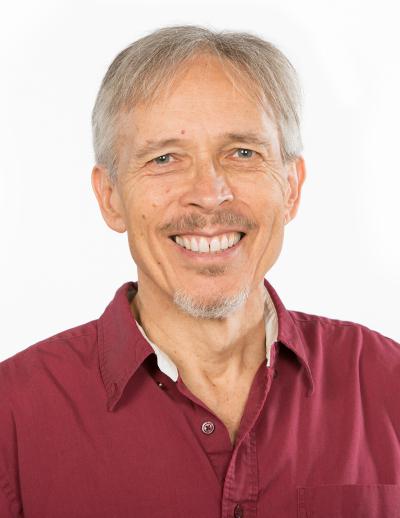
Chris Impey (University of Arizona)
For more information about this talk click here
-
Introduction to the Climate App and its educational resources
Thursday Nov. 30, 2023
UTC: 7:05 p.m. - 7:20 p.m. America/New_York: 2:05 p.m.- 2:20 p.m.Friday Dec. 1, 2023
UTC: 10:35 a.m. - 10:50 a.m. America/New_York: 5:35 a.m.- 5:50 a.m.How does the greenhouse effect work? How do we know the temperatures on the planets around other stars? All these questions can be studied thanks to the ClimateApp, an interactive web tool that creates a simple model of the atmosphere. We will show you how to use this tool in the classroom and we will go through the educational resources we’ve developed around it. Lots of potential for discoveries with your students! Note: the ClimateApp and the educational resources are available in English and French.
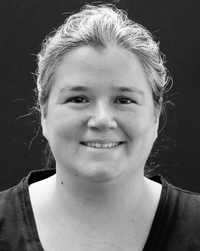
Julie Bolduc-Duval (Discover the Universe, Dunlap Institute, University of Toronto)
Coauthors: Nicolas Cowan (Trottier Space Institute, McGill University)
For more information about this talk click here
-
Environmental School "Awareness of the Habitable Planet"
Thursday Nov. 30, 2023
UTC: 7:20 p.m. - 7:30 p.m. America/New_York: 2:20 p.m.- 2:30 p.m.Friday Dec. 1, 2023
UTC: 10:50 a.m. - 11 a.m. America/New_York: 5:50 a.m.- 6 a.m.The Environmental School "Awareness of the Habitable Planet" (the word conciencia in Spanish also reads as "with science") is an itinerant initiative that promotes environmental education for boys and girls in the secondary school cycle. Multidisciplinary workshops help address the habitability conditions of the planet, in direct contact with scientists from the areas of atmospheric, marine, astronomy and environmental sciences. The environmental school complements the school curriculum using an "Exploration Log" to assess content learning. With nature visits, an environment of awareness is created, fostering a sense of hope in practical solutions. The school promotes the STEM approach and collaborative work, providing children with tools to be agents of change in society from early age.
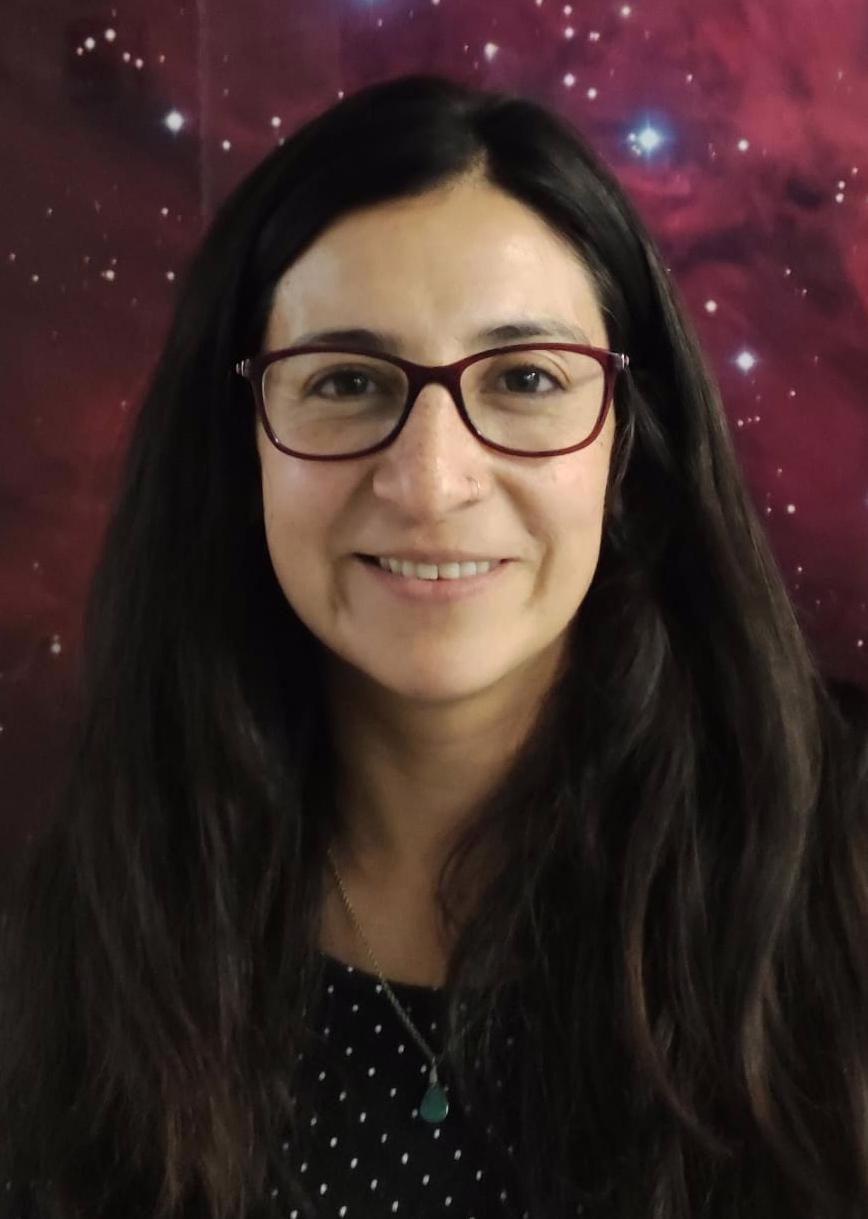
Irma Fuentes-Morales (Universidad de Santiago de Chile (USACH) and Ruta Sustentable Environmental Foundation, Chile)
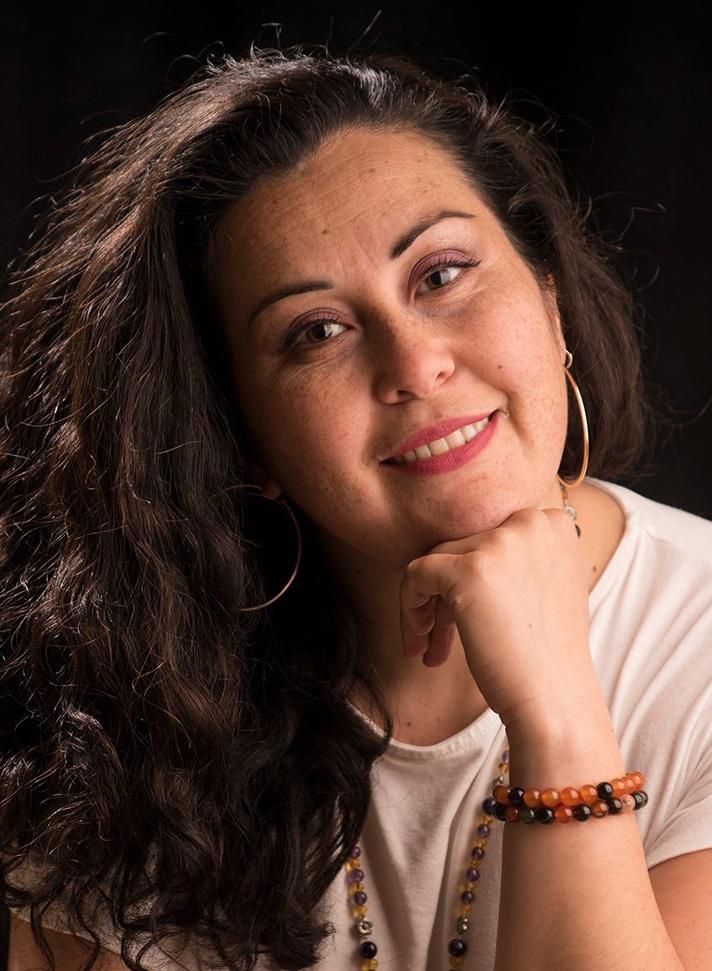
Mariana Duran (Ruta Sustentable Environmental Foundation)
Coauthors: Daniel Muñoz (Ruta Sustentable Environmental Foundation), María J. Ochoa-Muñoz (CIDEMAR Foundation)
For more information about this talk click here
-
Discussion Panel: Beyond Earth: the atmospheres of planets and moons of the Solar System and exoplanets
Thursday Nov. 30, 2023UTC: 7:30 p.m. - 8 p.m. America/New_York: 2:30 p.m.- 3 p.m.
Friday Dec. 1, 2023
UTC: 11 a.m. - 11:30 a.m. America/New_York: 6 a.m.- 6:30 a.m.Chair:

Samantha Brown-Sevilla
Panel: Nathan Mayne , Chris Impey
(University of Arizona), Julie Bolduc-Duval
(Discover the Universe), Irma Fuentes-Morales
(Universidad de Santiago de Chile (USACH) and Ruta Sustentable Environmental Foundation, Chile), Mariana Duran
(Universidad de Santiago de Chile (USACH) and Ruta Sustentable Environmental Foundation, Chile)
Posters
-
Planetary climates and critical thinking in STEAM education
Tamazawa Harufumi (Kyoto Univercity / Kyoto CIty Univercity of Arts)
When the discussion of planetary climate is used in education, it is often stressed that the importance of conservation of the global environment and the survival of humankind is important. Considering that the timescale of astronomy is longer than the timescale of human existence, academic discussions and educational ideas do not necessarily match. There are also efforts to incorporate the perspective of environmental ethics into STEAM education. When seriously trying to incorporate ethical and philosophical perspectives into STEAM education, there are times when we think about the pros and cons of human survival. Although this material is effective in training critical thinking, it should be considered carefully, especially in the context of primary and secondary education.





